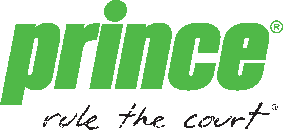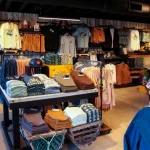 Prince Sports has filed voluntary petitions for Chapter 11 reorganization in the U.S. Bankruptcy Court for the District of Delaware. Prince has also filed with the bankruptcy court its proposed plan of reorganization plan that calls for the company to be acquired by Authentic Brands Group LLC, the owner of the Tapout brand.
Prince Sports has filed voluntary petitions for Chapter 11 reorganization in the U.S. Bankruptcy Court for the District of Delaware. Prince has also filed with the bankruptcy court its proposed plan of reorganization plan that calls for the company to be acquired by Authentic Brands Group LLC, the owner of the Tapout brand.
Prince has secured a commitment of debtor-in-possession financing that will give its vendors and suppliers confidence in its position to operate in Chapter 11. This proposed restructuring would relieve the company from a debt burden in excess of $60 million of secured indebtedness.
Prince Sports' portfolio of brands includes Prince (tennis, squash and
badminton), Ektelon (racquetball) and Viking (platform/paddle tennis). Its tennis unit recorded $59 million in sales last year, accounting
for 83 percent of the company's revenue, according to a
bankruptcy court filing. Just over half of Prince's sales come from
North America.
In court papers, Gordon Boggis, president and CEO of Prince Sports, Inc., said, “Declines in the global racquet sports market and demand for the industryâ€s products, combined with increased competition over the past five years, have resulted in lower sales of the ebtors†product lines. The downturn in the economy commencing around 2008 has particularly negatively impacted consumer discretionary spending and thus sales industry-wide.”
He said that in response to these economic challenges, the company in November 2012 engaged UBS to commence a formal process to sell rights to the companyâ€s brands in certain product categories as well as to attempt to sell the company's ongoing operations in China in order to pay down a significant portion of the secured debt as well as restructure its debt obligations with its then-lenders, GE Capital and Madison Capital. This process continued through around February 2011, but ended when the company did not receive any acceptable bids for the marketed asset classes.
Following the conclusion of this sale process, the company created a new brand and marketing strategy. These changes include a new brand and advertising strategy and an upgrade of the company's products in order to develop increased market share, resulting in a meaningful increase in booking orders in many markets. In October 2011, the company decided to commence another sale process to sell one or more of its assets and/or enter into additional licensing arrangements with third parties. Unlike the first sale process in 2010, the company decided to broaden the focus of the marketing of its assets and engaged Robert W. Baird and Co. to explore entering into licensing arrangements for the company's products and to market a wider array of the company's assets in order to accomplish this goal. Based on Baird's marketing efforts, several potential buyers indicated a willingness to not only acquire certain of the company's assets on a
piecemeal basis, but also to acquire the company as a going concern.
In December 2011, when shareholders, the former lenders, and the Board of Directors agreed that the focus should shift to sale of the company as a going concern, Baird's assignment changed to focus on a potential sale of the company as a going concern. Baird contacted over 82 potential investors. The company received 9 indications of interest, all of whom conducted due diligence. By March 2012, the company was in the process of negotiating a potential sale of the company with three potential third party purchasers (for substantially less than the existing amount of the secured debt) when Authentic acquired the secured debt from GE Capital and Madison Capital on March 27, 2011 and obtained from GE Capital and Madison Capital their previously-held liens on substantially all of the company's assets. Thereafter, Authentic indicated its interest in acquiring ownership of the company. Given Authentic's proven track record in successfully acquiring and managing companies with extensive intellectual property holdings and the fact that Authentic is now the single holder of the secured debt, the company believes that its acquisition by Authentic pursuant to the terms set forth in the Plan are in the best interests of the company's economic constituents and provide the best prospects for the company's successful reorganization as well as the deleveraging of the secured debt from the reorganized company's balance sheet, court papers said.
Besides Tapout, Authentic Brands Group includes Marilyn Monroe, Sinister, Hitman Fight Gear, Iron Star and Bob Marley.
In a statement, Boggis said, “After considering several business options, the Board of Directors and the senior management team firmly believe that the Chapter 11 filing is not only a necessary step but also the right thing to do to ensure a secure future for Prince.”
He added that Prince said it will utilize the Chapter 11 process to develop a more competitive business model. He added that despite economic constraints, consumer demand for Prince products and interest in the brand remains strong worldwide. Prince continues to be globally recognized as a leader in its category.
“We anticipate to emerge from this period as a more efficient, performance racquet sports brand with a more competitive model in the market, while eliminating the economic constraints that have prohibited the brand from achieving its potential,” continued Boggis. “The Board of Directors, the senior management team and I would like to underscore our appreciation for the hard work and loyalty of our employees. Prince continues to be a world leader in bringing to market meaningful, visible and proven product innovation within the racquet sports market and our employees have contributed greatly to that.” Prince plans to continue to pay employee wages and benefits and service customers during the Chapter 11 process. Subsidiaries outside of the U.S. (such as Prince Europe, Prince Italy, Prince France, Prince Benelux, Prince Taiwan and Prince China) are not subject to the proceedings and are expected to operate in ordinary course.
“Prince is, and will continue to be, a great, global brand in the racquet sports business. This filing does not change that,” concluded Boggis. “We have a long history, and are planning for an exciting future, focused on game-changing, product innovation, engineered to take players' games to the next level. Securing this protection will help us to continue to focus on that vision.”
The filing listed up to $100 million each in assets and debts. Among the
largest unsecured creditors listed in the Bordentown, New Jersey-based
company's Chapter 11 documents filed today in U.S. Bankruptcy Court in
Wilmington, Delaware, were Da Sheng International Holding Ltd. of Taiwan
and Pais International Ltd. and Marshal Industrial Corp., both of Hong
Kong, each owed more than $1.9 million in trade debt.
The company has a book value of $54.2 million and about $65 million in
debt to Authentic, plus $12 million in debt to vendors and other
payables, the filing said.
In the past decade, Prince has changed hands through a series of
private-equity deals, getting acquired most recently in 2007 by Nautic
Partners LLC. Nautic bought Prince from Lincolnshire Management Inc.,
which had purchased Prince in 2003 from apparel company Benetton Group.














